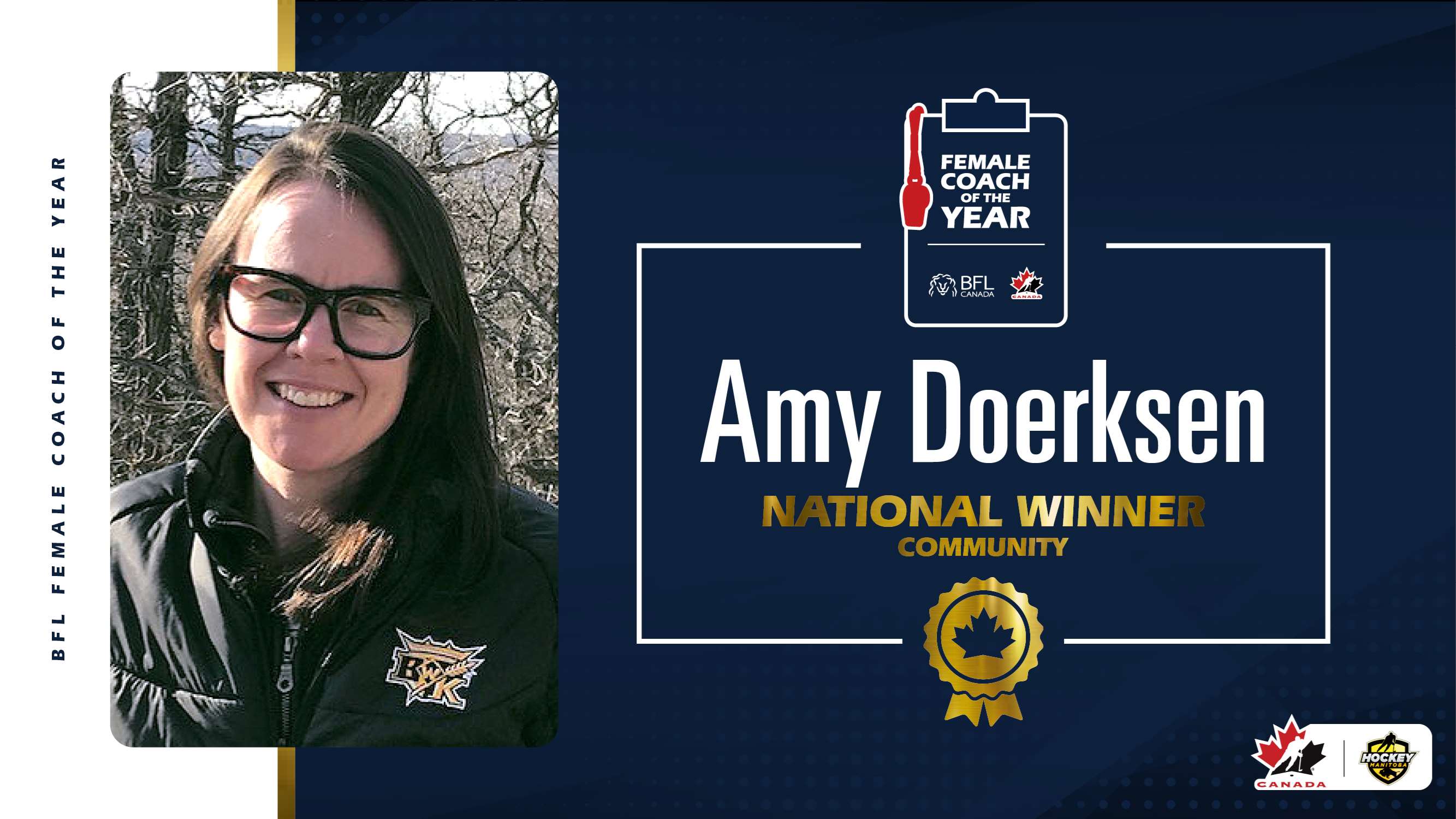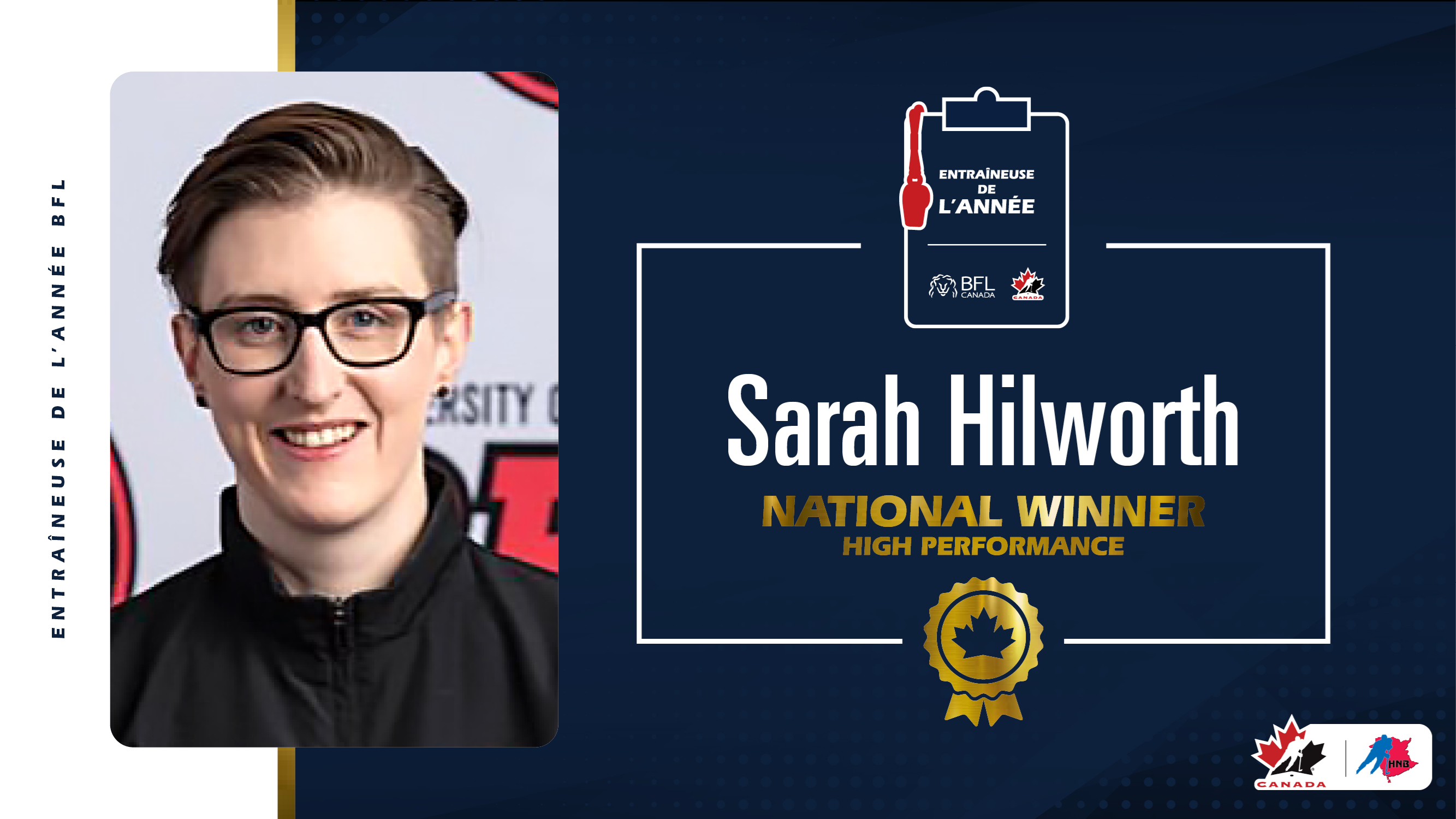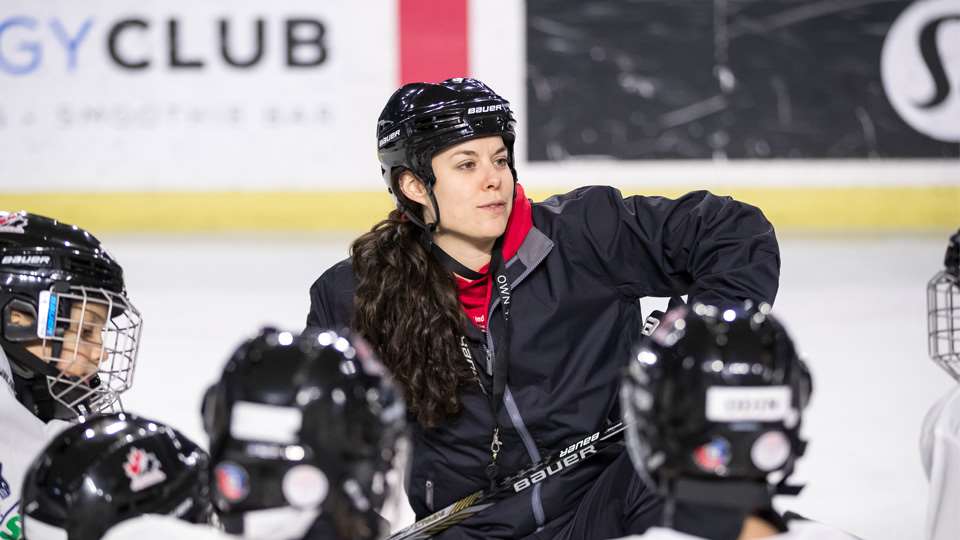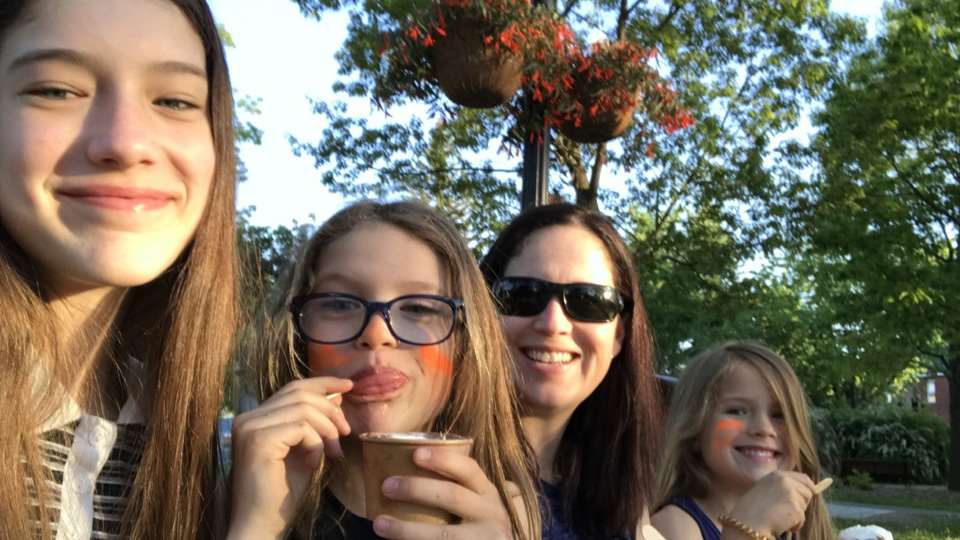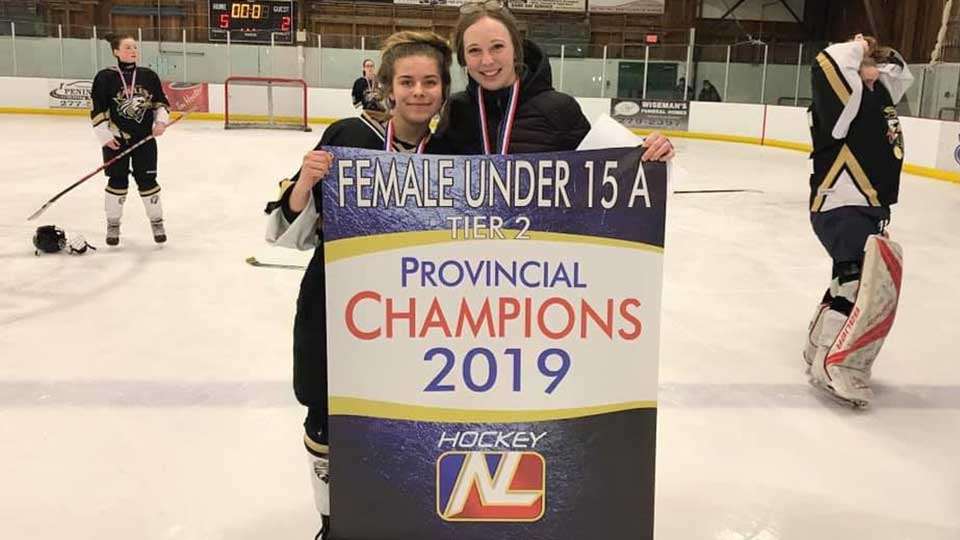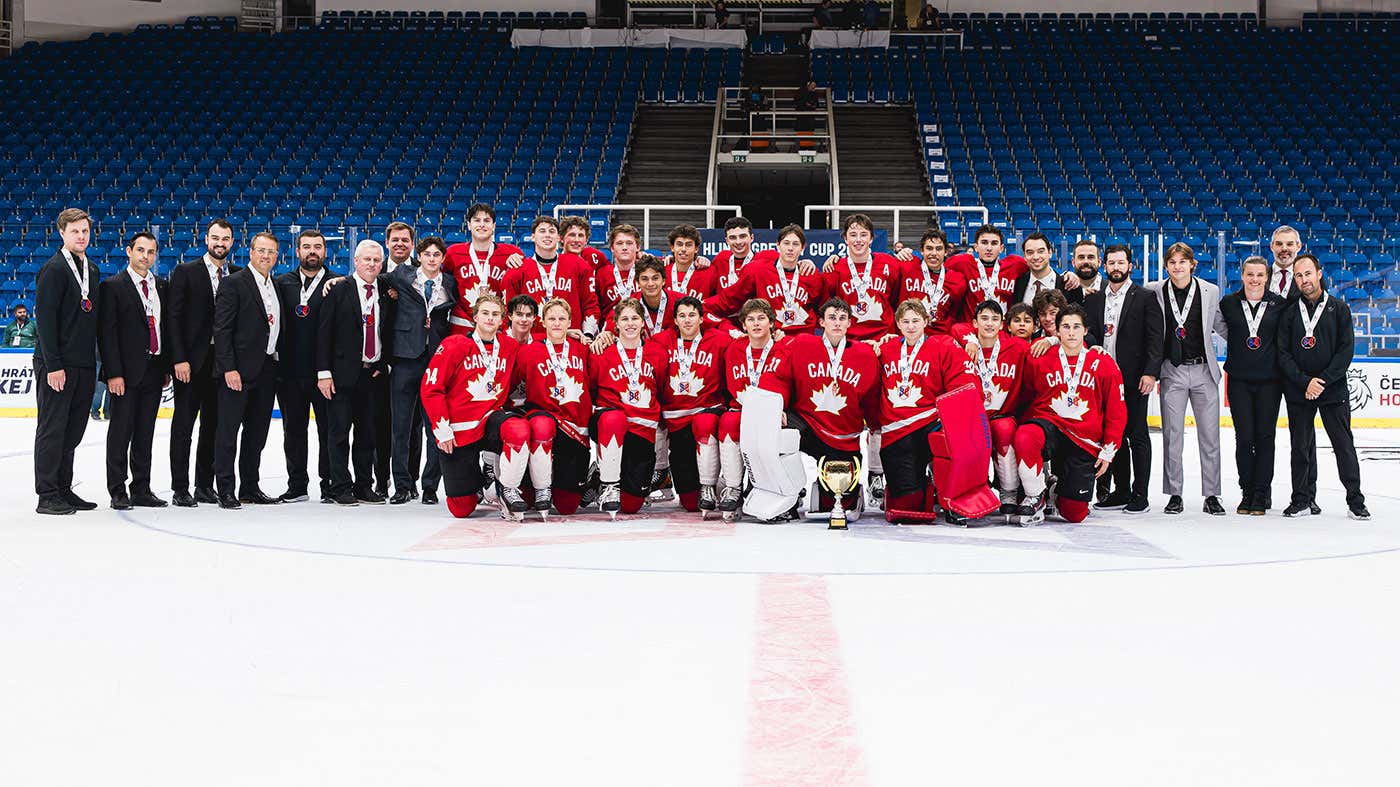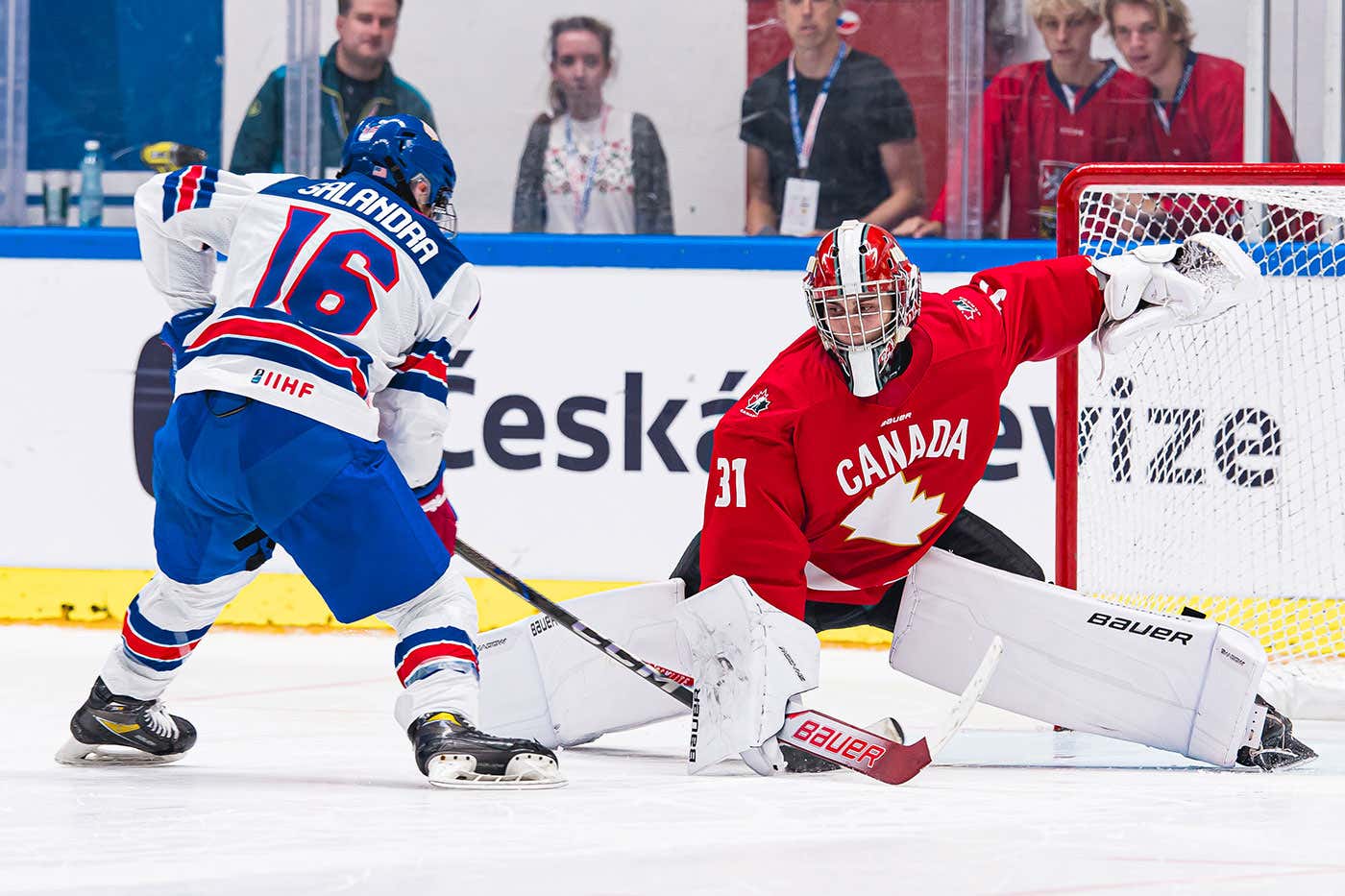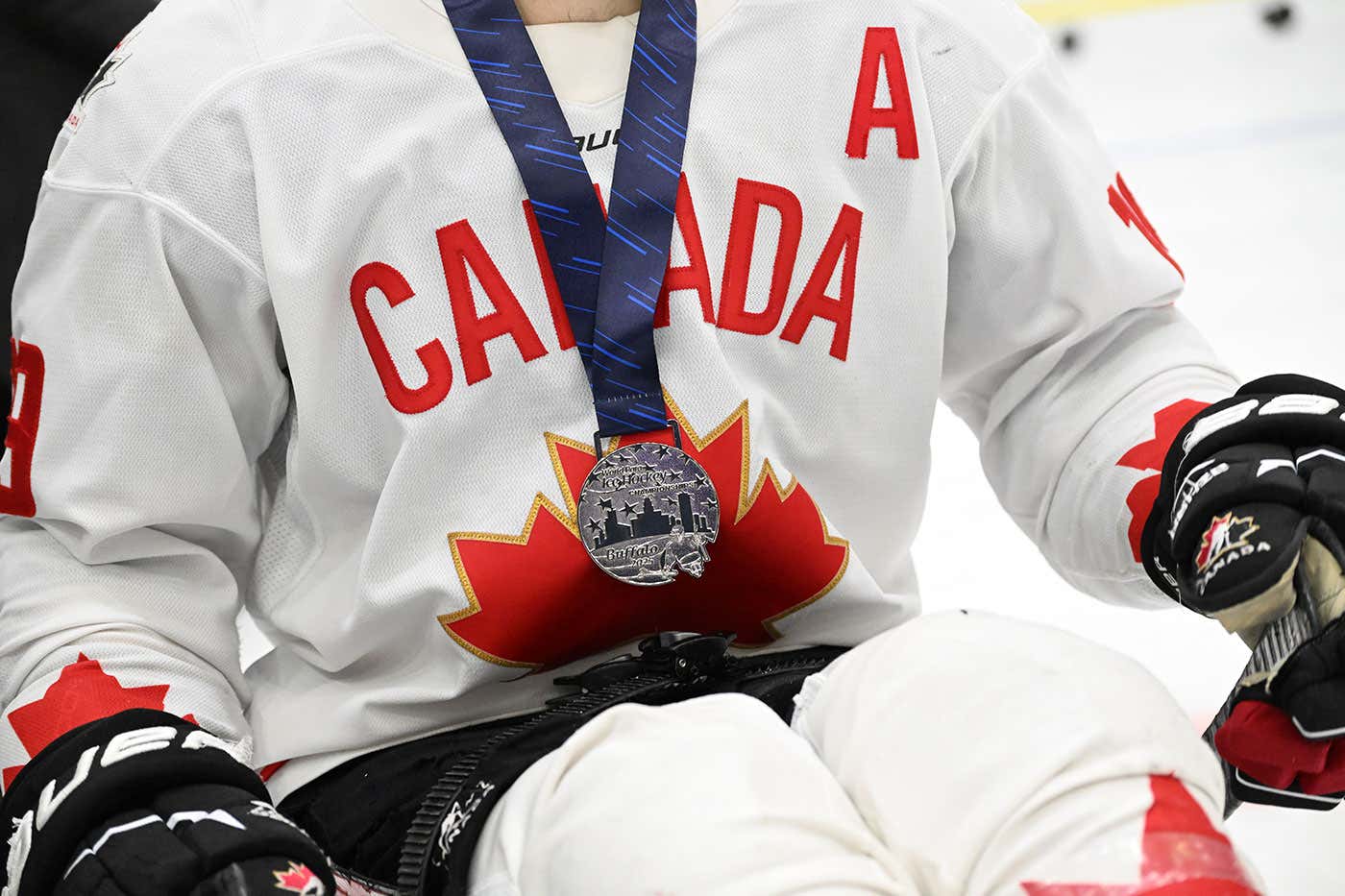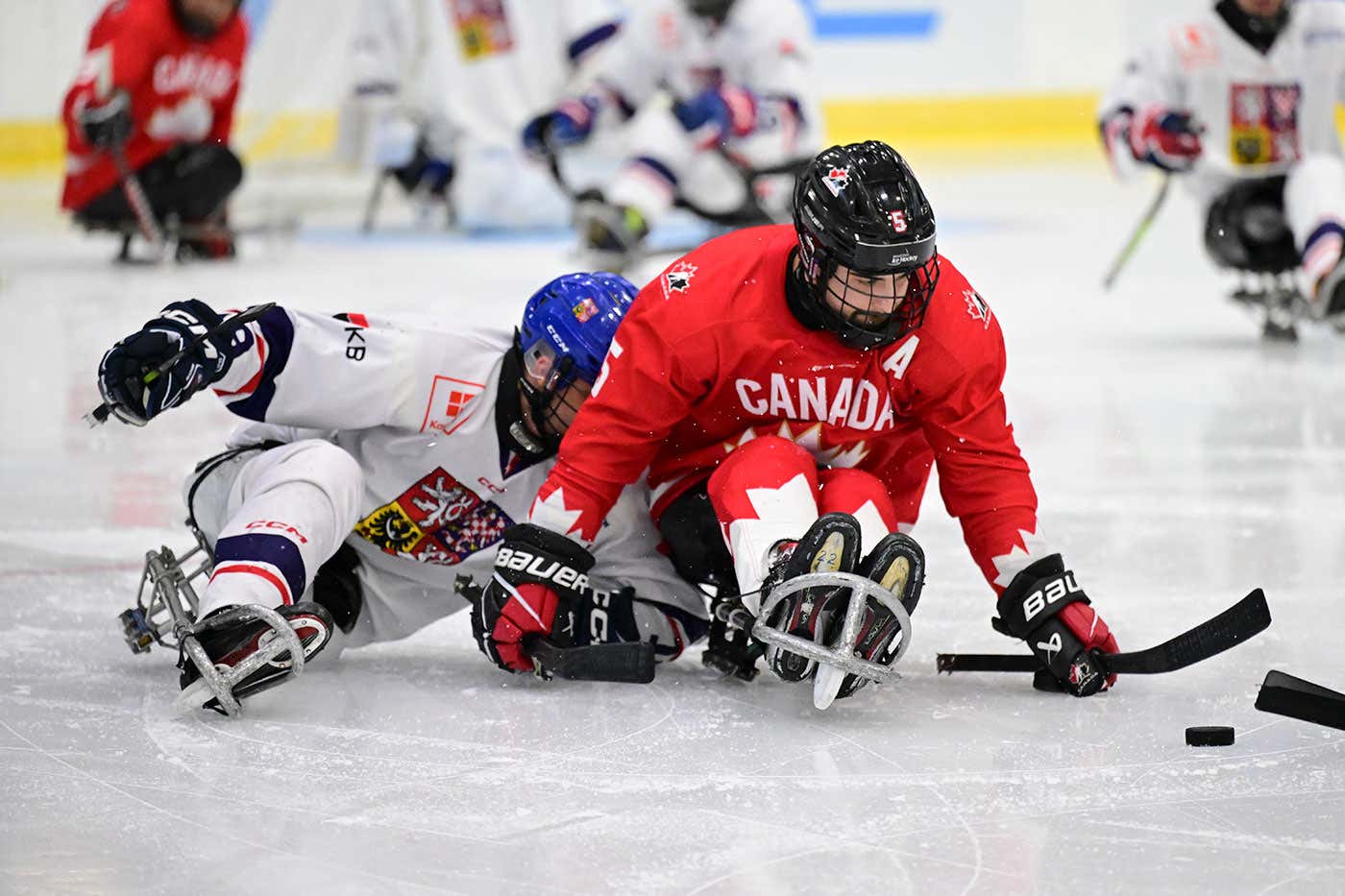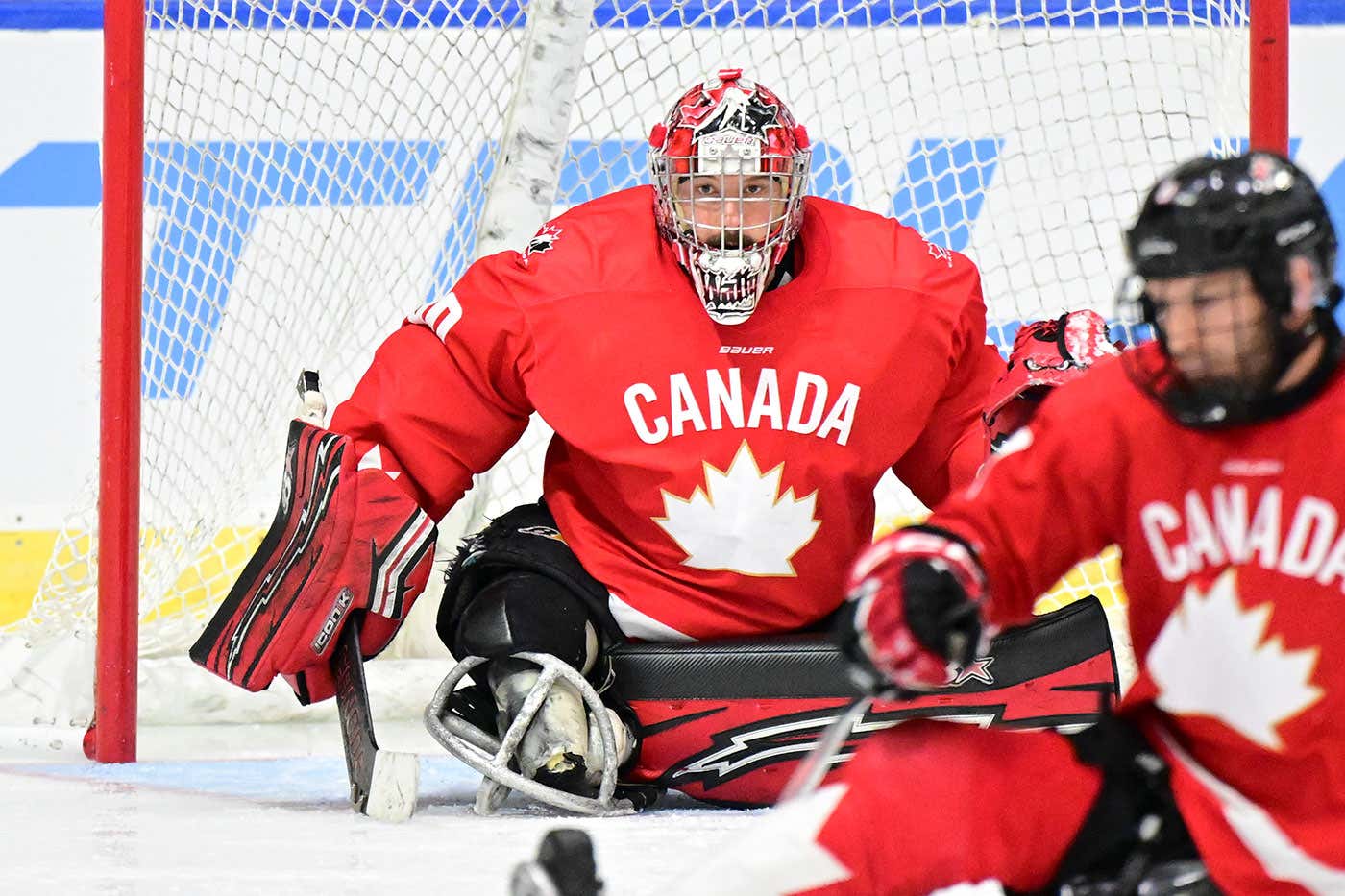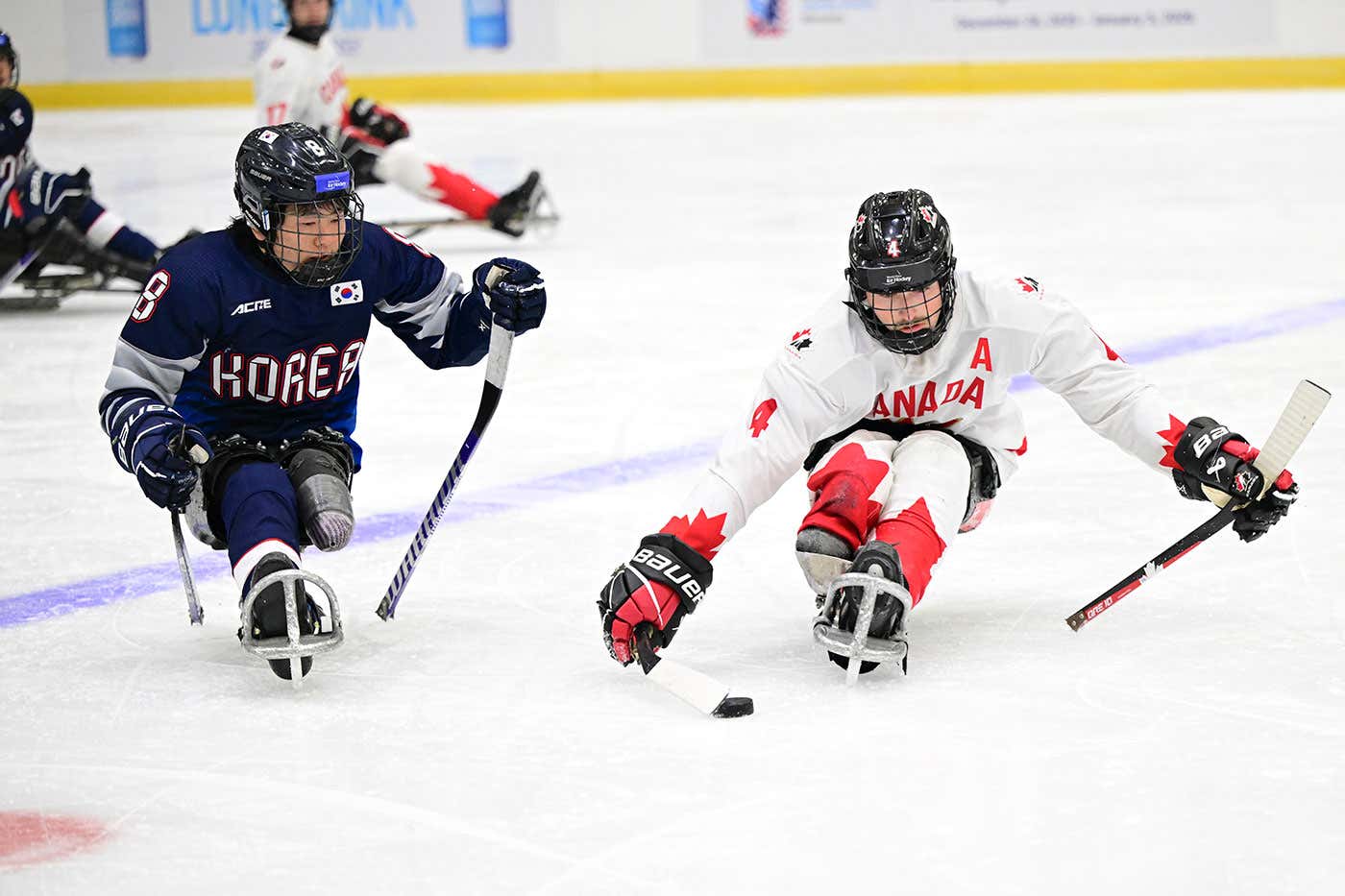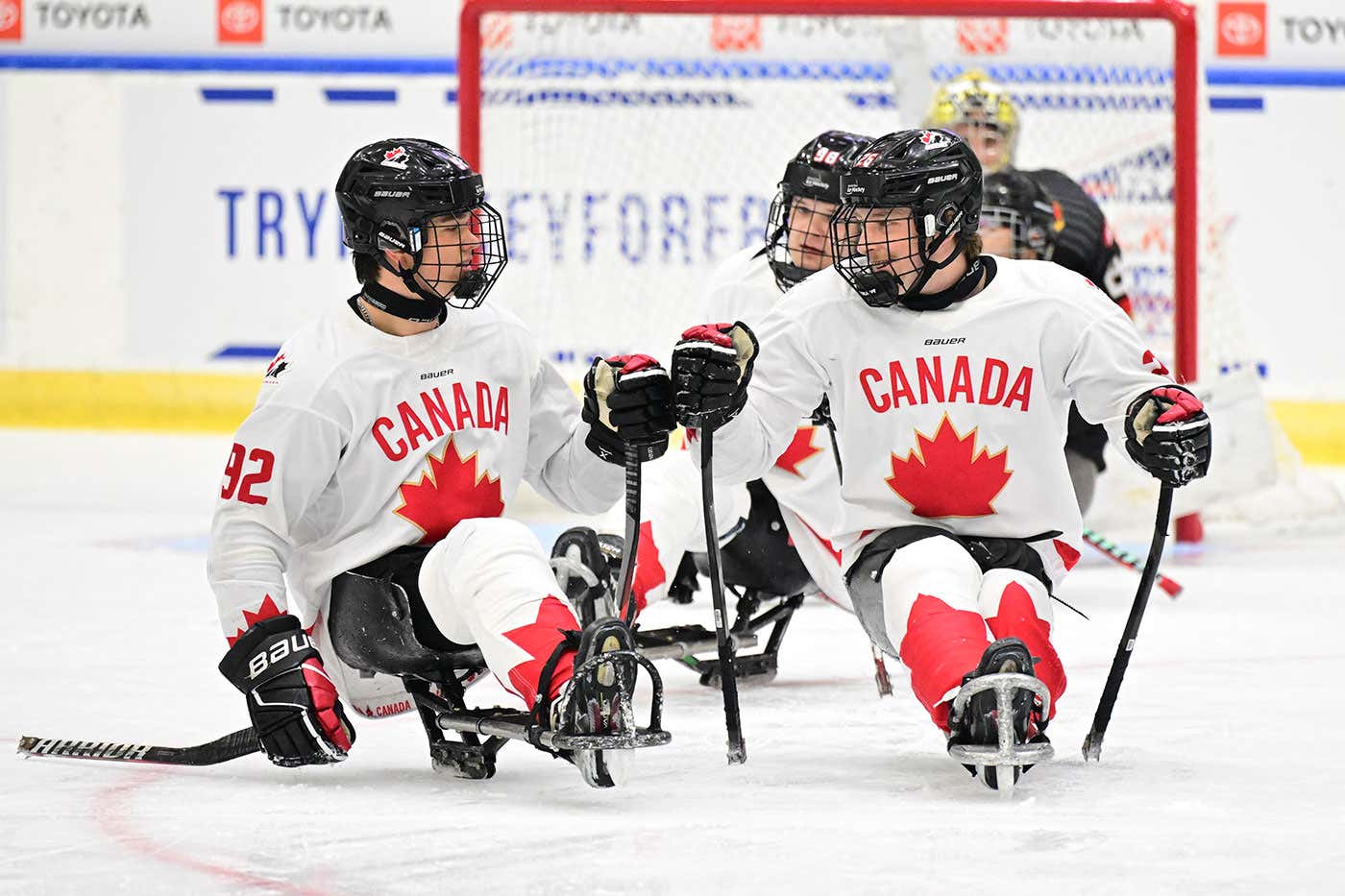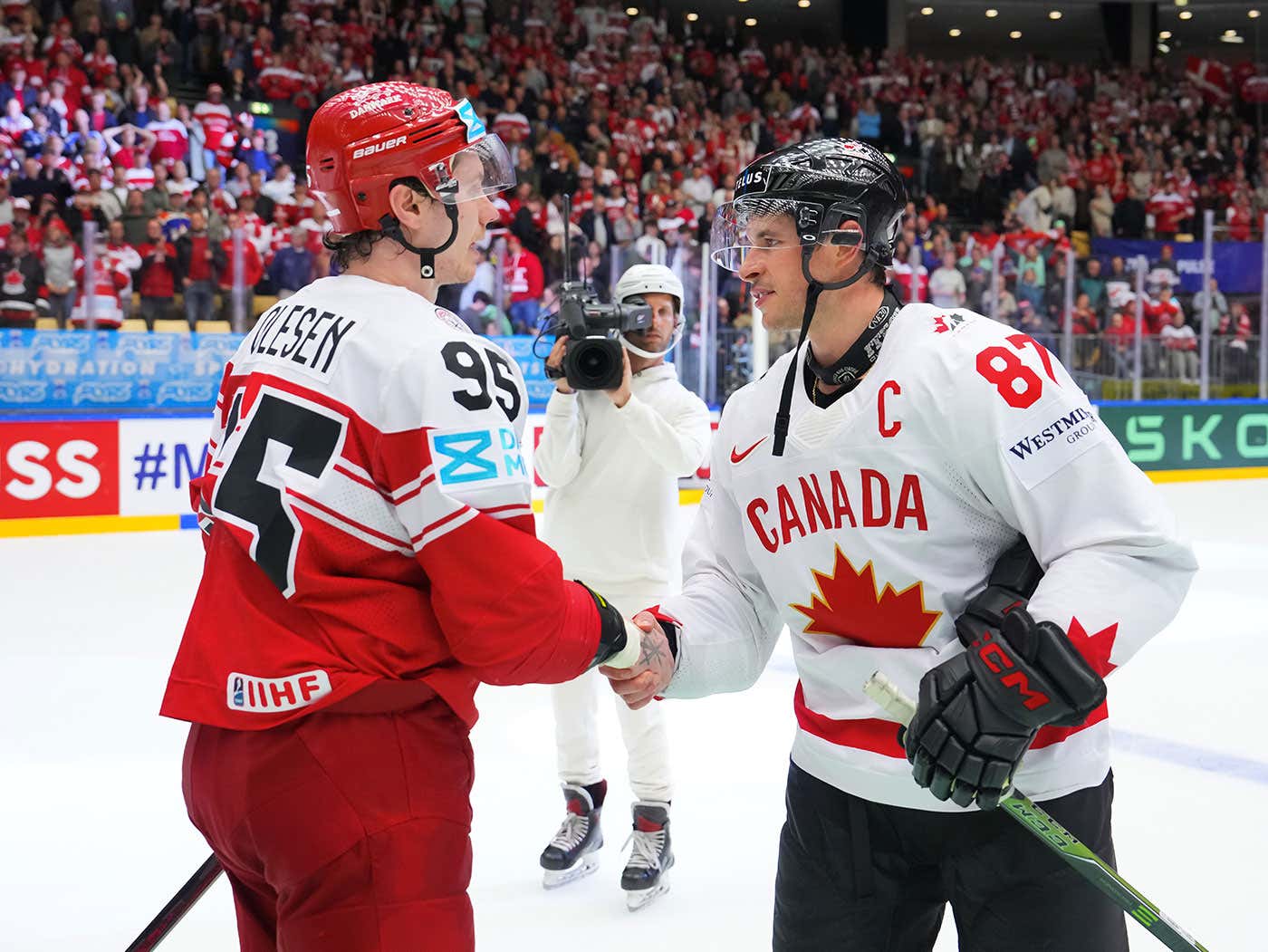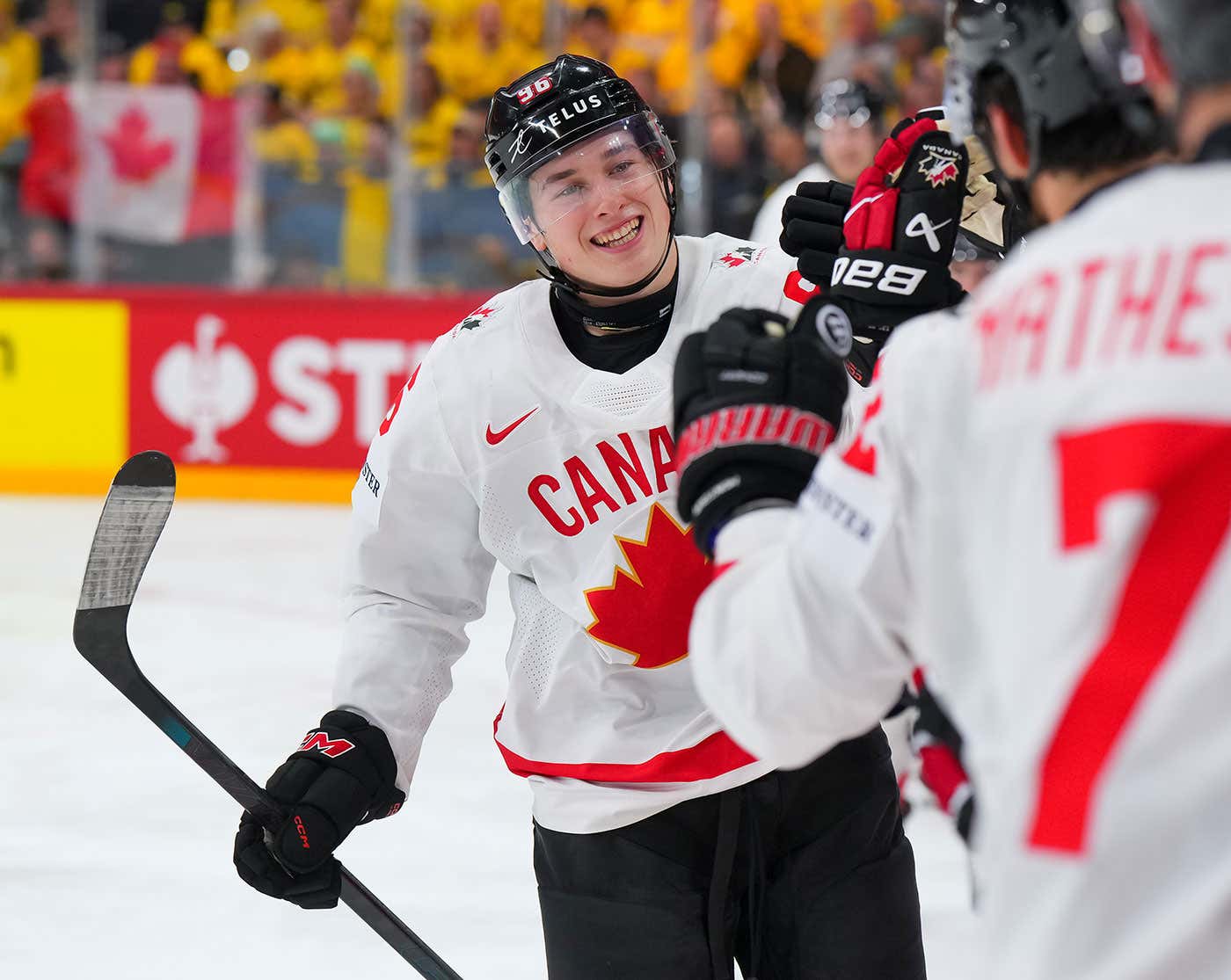
Schedule
Team Canada (Men)
2026 Olympic Winter Games | Feb. 11-22, 2026
IIHF World Championship | May 15-31, 2026
IIHF World Junior Championship | Dec. 26, 2025 - Jan. 5, 2026
Spengler Cup | Dec. 26-31, 2025
Hlinka Gretzky Cup | Aug. 11-16, 2025
4 Nations Face-Off | Feb. 12-20, 2025
Junior A World Challenge | Dec. 9-15, 2024
Search
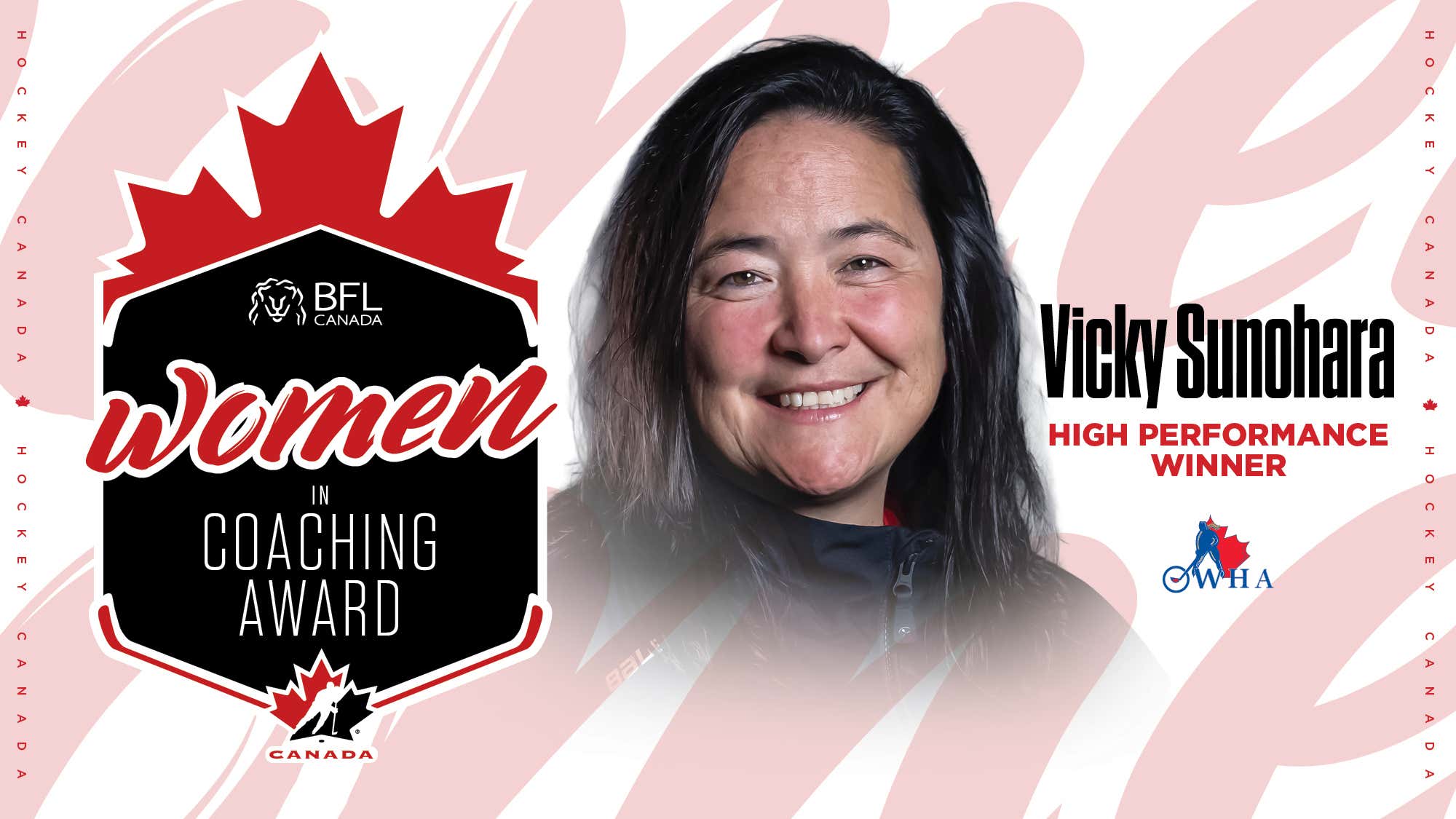
A rewarding coaching journey
Coaching may not have been a priority for Vicky Sunohara after her retirement, but the National Women’s Team legend has found passion and joy in developing people through the game

Coaches are leaders in hockey. Providing the space and resources to allow players to be the best they can be on and off the ice is an important job—and it’s something Vicky Sunohara takes seriously as a coach.
“[Our job as a coach] is to develop people through sport,” Sunohara says. “I take that very serious. It’s not only developing the hockey side, but it’s also trying to help provide a supportive environment and be a leader within a good culture.”
When Sunohara she learned that she was selected as the national recipient of this year’s BFL CANADA Women in Coaching Award in the High Performance category, she was surprised.
“I’m not certain I’m deserving of this recognition, but it’s very humbling,” she says. “I coach with and against some amazing women coaches and I’ve learned so much from many of them. This is pretty special.”
It’s no secret that Sunohara has a wealth of experience and accolades that she pours into her coaching roles. A two-time Olympic gold medallist and seven-time world champion during her playing career, Sunohara sits 11th in scoring with Canada’s National Women’s Team with 118 points (56-62—118) in 164 international games and was inducted into the IIHF Hall of Fame earlier this year.
Her playing career dates back to the 1980s; after four seasons of college and university hockey—two with Northeastern University and two with the University of Toronto—she spent time in the old Central Ontario Women’s Hockey League (COWHL) before playing parts of 11 seasons with the Brampton Thunder in the National Women’s Hockey League (NWHL) and Canadian Women’s Hockey League (CWHL)
Some players know they want to coach after they retire, but that was not the case for Sunohara.
“I didn’t think that I would get into coaching, to be honest,” she explains. “It was kind of just sprung on me at the time. I started to help out at practice, running a few drills.”
Near the end of her last CWHL season, Sunohara discovered she was pregnant with her twin boys. Deciding not to take any chances, she spoke to some teammates and decided to hop behind the bench for the rest of the season.
“From then on, [coaching] was in the back of my mind because I realized I wasn’t going to play anymore.”
After her sons were born, Sunohara became the director of women’s hockey at The Hill Academy in Caledon, Ontario, a role she held for two seasons. In 2011, a full-time head coaching position opened with the University of Toronto’s women’s hockey team.
She jumped into the role with her alma mater, despite not having much insight into all of the responsibilities of a U SPORTS head coach.
“I didn’t start as an assistant coach, so I didn’t really learn from a head coach or have a mentor coach. I had many great coaches as a player, and that’s where I drew a lot of my coaching philosophies from,” she says. “I had my own thoughts on what I really liked and what I wanted to continue, but not any experience as an assistant coach. That was difficult.”
With the help of a supportive athletic director and staff, Sunohara began to navigate through her journey as a head coach, learning as she went.
Thirteen seasons later, Sunohara has guided the Varsity Blues to three McCaw Cups as Ontario University Athletics (OUA) champions (2020, 2023, 2025) and a trip to the U SPORTS national championship game in 2024. She was named coach of the year for both the OUA and U SPORTS for three consecutive seasons from 2019-23 and earned OUA Female Coach of the Year honours spanning across all sports in 2019-20.
“When I won my first Olympic gold medal, I loved watching the joy in my teammates and staff, and just knowing the work and what went into winning that. I get that feeling when we won the OUA championship because it’s really difficult,” she says. “We play in a difficult league; it’s not something that is easy to win. I love watching my assistant coaches, staff and the players—I can step back and I feel so great and proud of them.”
Having the chance to reconnect with players after their university career is over provides another opportunity for reflection.
“Seeing players again and talking about their experiences and where they’ve done after they’ve graduated—it’s awesome,” she says. “Having the opportunity to be a small part of their lives is amazing.”
In addition to university sports, Sunohara loves to coach women’s U18 athletes. As a player, she didn’t have as many chances to play high-level hockey and develop at that age.
“I had great leadership and guidance playing on the senior team, but I think missed out on those years of opportunities on at a very young age,” Sunohara says. “These U18 teams, they’re learning at a younger age and able to be supportive of each other, but they also understand that even if you’re not on a top power play or the top line, you can still have an impact on the team’s success.”
Sunohara was an assistant coach when Canada’s National Women’s Under-18 Team won gold at the IIHF U18 Women’s World Championship in 2022 and bronze in 2024. This past season, she took the reins as head coach, winning another world title, and she is returning to lead Canada at the 2026 U18 Women’s Worlds in Sydney and Membertou, Nova Scotia.
With her own experience representing Canada on a national stage, Sunohara is happy to have the opportunity to share what made her teams successful and make a different in the next generation’s development.
“It’s really rewarding and so exciting for me to watch the young players put on the Team Canada jersey for the first time and represent their country,” she says. “After this past worlds, to watch them win gold, it’s such a feeling of pride.”
Sunohara’s coaching experience doesn’t stop there—she joined the PWHL’s Toronto Sceptres hockey operations staff this season as a coach consultant and participated in practice planning with the team’s coaching staff.
“I loved every minute of it,” she says. “I learned so much and being on the ice with the players at that level was pretty special.”
Witnessing the evolution of professional women’s hockey up close also provided some reflection about how far the game has come since Sunohara hung up her skates.
“I would have loved to be a part of that as a player. Watching something that is a dream come true for me was pretty special,” she says. “I loved having the opportunity to have conversations with the players and coaches about continuing to develop the game and listening to their thoughts.”
The phrase, “if you can see it, you can be it,” is often associated with women’s hockey in terms of inspiring the next generation to play, coach and officiate. Sunohara says she’s still learning and developing as a coach.
Although she was initially thrown into her coaching journey, she’s happy that she has mentors now to get guidance, feedback and help.
“We always talk about getting out of your comfort zone as a player. Get out of your comfort zone as a coach and ask for a mentor,” she encourages. “Coaches are often willing to help each other. The best part of development is having those conversations, learning, working with people and being a fly on the wall.
“There’s so many people that would love to help and be a part of the growth of a coach.”
For more information: |
- <
- >

















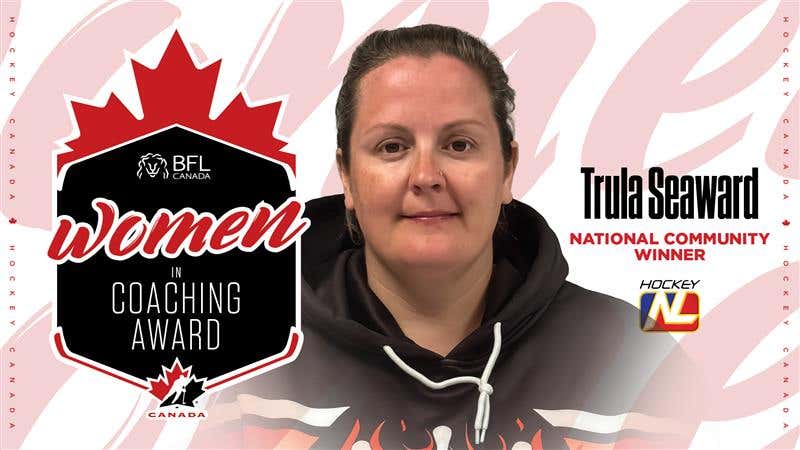
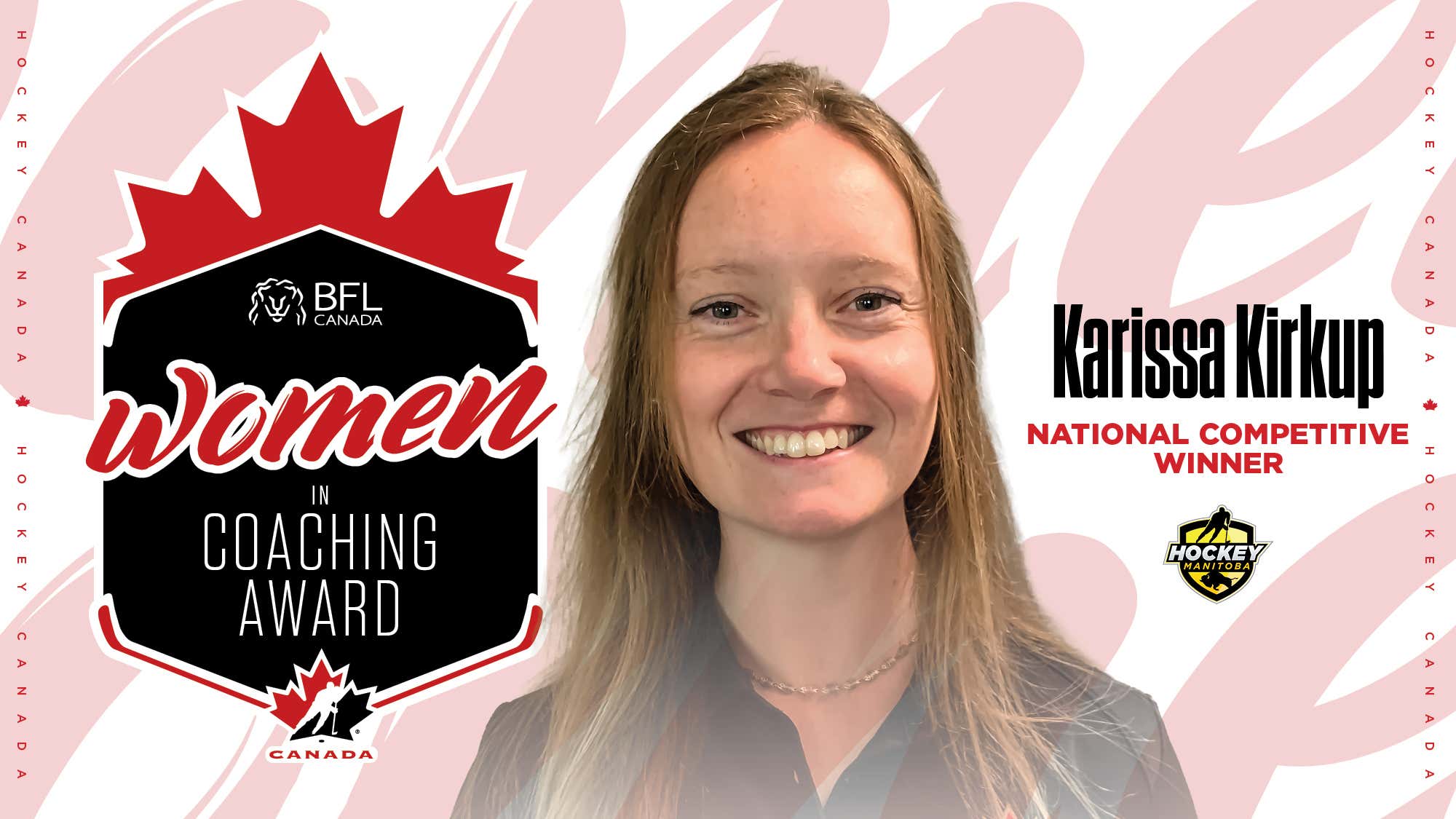


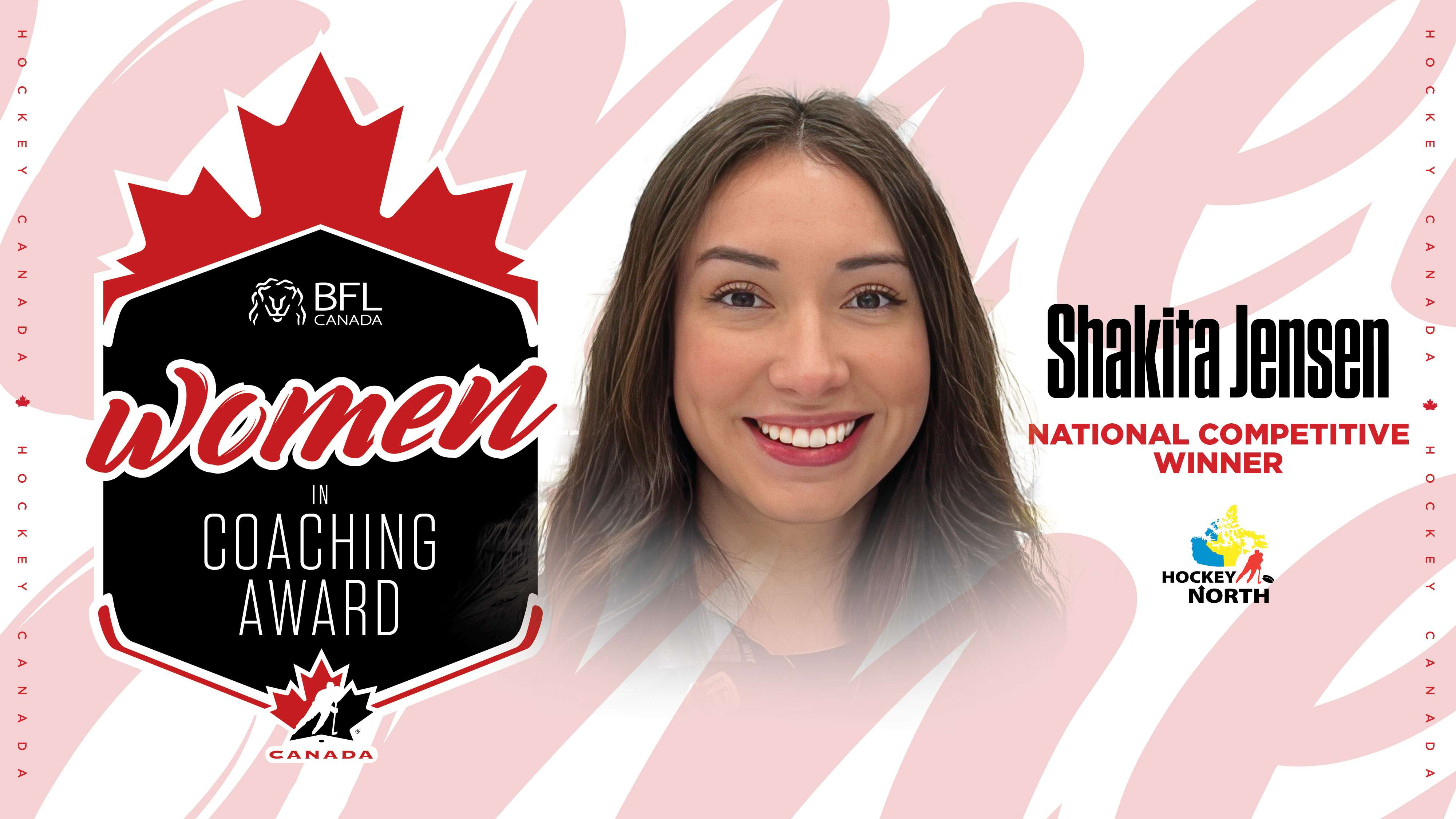
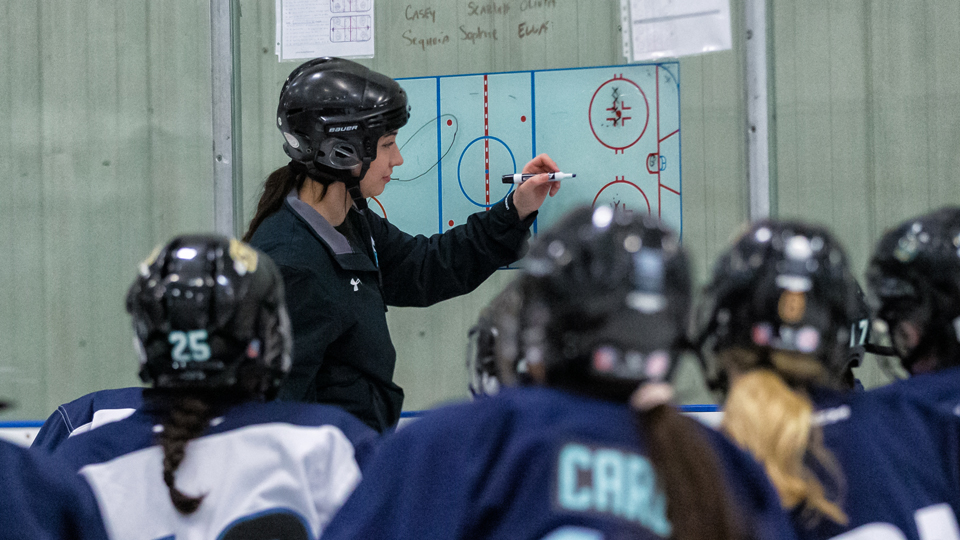 Jensen was in the right place at the right time to get her first head
coaching position. There was a shortage of coaches in her association, so
they asked Jensen—who initially applied to be an on-ice helper—if she wanted
to be a head coach.
Jensen was in the right place at the right time to get her first head
coaching position. There was a shortage of coaches in her association, so
they asked Jensen—who initially applied to be an on-ice helper—if she wanted
to be a head coach.


